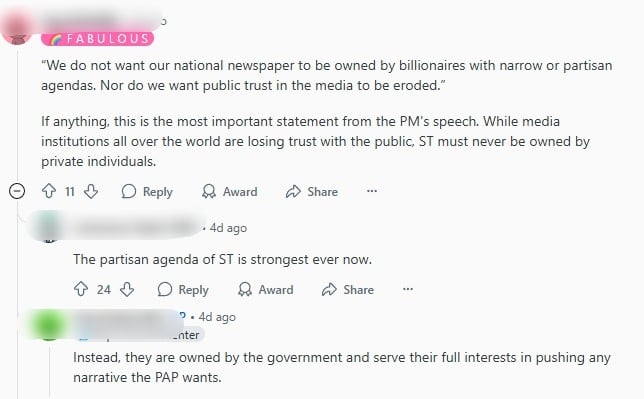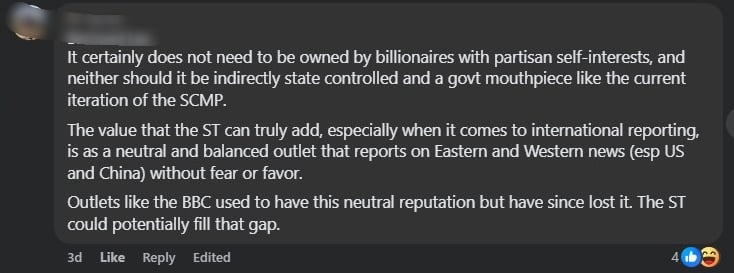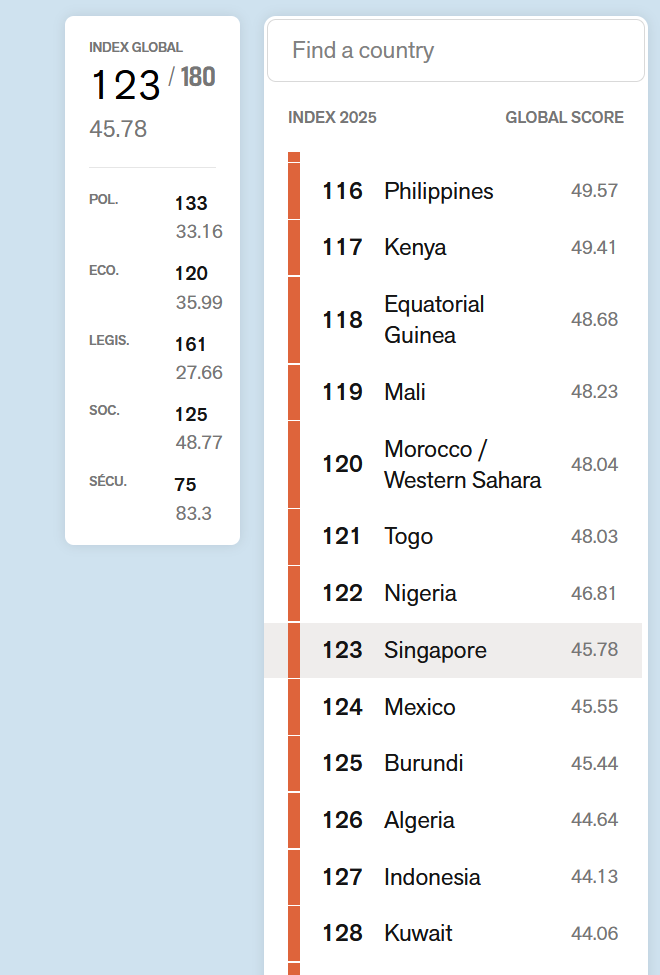SINGAPORE: Prime Minister Lawrence Wong has underlined the importance of trusted journalism, declaring that Singapore needs credible media more than ever to help society distinguish fact from falsehood in an increasingly complex world.
Speaking on 11 July 2025 at a dinner celebrating the 180th anniversary of The Straits Times (ST), Wong reiterated the government’s “full support and confidence” in the publication’s mission to inform, educate, and hold Singapore society together.
His backing comes amid ongoing debate over the independence of Singapore’s main English-language newspaper.
Many Singaporeans have taken to social media to question whether ST can operate free of state influence, especially after substantial government funding was pledged to its parent, SPH Media Trust (SMT).
In February 2022, the government announced up to S$900 million in funding over five years for SMT, which operates ST.
This support, of up to S$180 million a year, is intended to sustain quality journalism and keep the national newspaper financially viable as advertising revenues fall and audiences move online.
The injection of public money followed SMT’s restructuring in 2021, when it was separated from Singapore Press Holdings to function as a not-for-profit entity.
The move was aimed at ensuring that the nation’s flagship paper could adapt to the challenges of digital disruption and remain a trusted source of news.
PM Wong: Government support essential to keep public service media viable, independent, and accountable
Wong acknowledged that globally, traditional news outlets face shrinking newsrooms and commercial pressures that threaten editorial quality.
He cautioned against allowing Singapore’s national newspaper to fall into the hands of private billionaires with partisan aims or to let public trust in the press erode as a result of poor funding.
“We cannot allow that to happen here in Singapore,” Wong said.
“We do not want our national newspaper to be owned by billionaires with narrow or partisan agendas. Nor do we want public trust in the media to be eroded.”
He explained that government support is essential to keep public service media viable, independent, and accountable to Singaporeans.
PM Wong: ST must adapt and stay relevant
Wong also acknowledged that ST faces unprecedented competition, not just from other reputable outlets but from content creators and distractions across countless digital platforms.
He called on the paper’s editors and journalists to adapt boldly to remain relevant to future readers, even if that means significant changes to the newspaper’s style, tone, or length in the coming decade.
“I believe there will still be a place for print, and we should all do our best to keep print newspapers viable in Singapore for as long as possible,” Wong said.
He added that while the government supports ST’s mission, it would not dictate the editorial choices needed to keep the paper meaningful to Singaporeans.
Minister Josephine Teo echoes call for trusted news
Communications and Information Minister Josephine Teo also emphasised the government’s commitment to trusted media.
She noted that Singaporeans must have reliable sources to inform decisions affecting their daily lives and futures.
“We remain very committed to ensuring that our public service media can continue to capture the attention of our audience,” Teo said.
Public doubts over impartiality: “Will ST pose hard questions to those in power?”
Despite such reassurances, scepticism persists. Many Singaporeans have questioned whether the government’s financial backing allows ST to remain truly independent.
On social media platforms such as Reddit and Facebook, netizens have asked if journalists at ST will pose hard questions to those in power.
Some doubt whether the paper can avoid serving as a government mouthpiece, given its reliance on state funding.




One Reddit comment described the newspaper as a “monopoly” that still requires government help despite diversifying its business interests into property and aged care.

Concerns about media control
Another comment criticised what they saw as irony in PM Wong’s rejection of billionaire-owned outlets, pointing out that ST is already heavily funded and indirectly controlled by the state.

Some argued that both billionaire ownership and state control can threaten true journalistic independence.
One user wrote that Singaporeans should not have to choose between “billionaire-owned media and state-owned media,” but should instead have independent journalists who report in the public interest.

Comparisons to other countries
Several netizens compared Singapore’s situation to international examples.
One noted that while government ownership carries a partisan slant, at least an elected government is accountable to citizens — unlike unelected billionaires.

However, others countered that real media independence comes from autonomy, not state or corporate influence.
One cited the BBC as an outlet that once enjoyed a reputation for neutrality but has struggled to maintain it amid funding debates.
The user suggested that ST could position itself as a truly neutral outlet providing balanced coverage of both Eastern and Western perspectives, arguing that doing so could fill a gap left by declining trust in other global media brands.

Ravi Philemon: ST already heavily funded and controlled by the state
Ravi Philemon, Chief of Red Dot United, also weighed in the debate, criticised PM Wong’s remark about rejecting billionaire-owned media as ironic, pointing out that The ST is already heavily funded and controlled by the state.
“It is already funded to the tune of one billion dollars to keep a ruling party, one that seems more aligned with the filthy rich than with anyone else, in power,” Philemon commented in a FB post on 12 July.
He argued that Singapore’s ruling party uses public money to maintain a media system that serves its own power rather than true public interest journalism.
He highlighted that despite claims of independence, the press avoids asking tough questions and fails to challenge the government meaningfully.
Philemon warned that this controlled media environment keeps Singaporeans uninformed about real struggles like rising debt and inequality.
He warned that the real threat is not foreign billionaires, but a media kept loyal through state funding, which preserves a system that benefits the wealthy and entrenches political power.
Calls for media literacy and critical reading
Some Singaporeans stressed the importance of critical reading and media literacy.
They argued that citizens should consult a range of credible outlets rather than depend solely on one publication, whether state-backed or privately owned.
One user commented that media must serve the people and retain enough autonomy to scrutinise those in power without fear or favour.
Another urged fellow Singaporeans to read widely, pointing out that a healthy democracy relies on an informed citizenry capable of questioning any narrative.


Singapore ranks low on press freedom, with RSF citing lack of editorial independence
According to the 2025 World Press Freedom Index published by Reporters Without Borders on 2 May, Singapore ranked 123rd out of 180 countries.
The report criticised Singapore as an example not to follow, citing a severe lack of editorial independence and little respect for press freedom. RSF noted that independent political journalism is scarce, with outlets like The Online Citizen forced into exile.

The post PM Wong reaffirms ‘full support and confidence’ in ST as netizens question its impartiality appeared first on The Online Citizen.


